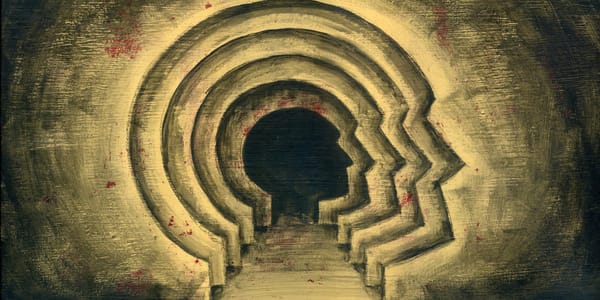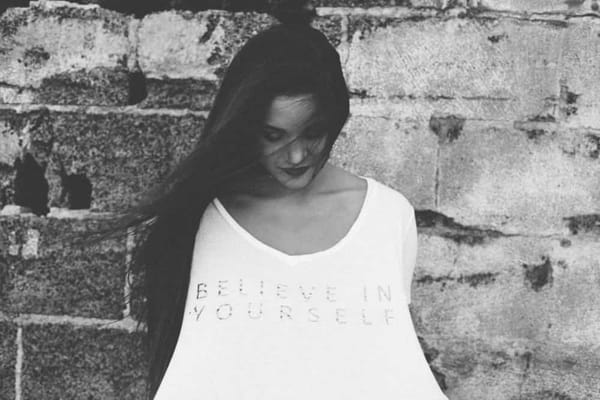The Psychology of Awkwardness: Why That Cringe-Worthy Moment Haunts You (And No One Else)

You’re lying in bed, trying to sleep, when it hijacks your brain.
It’s that memory. That one thing you said five years ago at a work party. The joke that landed with a deafening thud. The time you waved back at someone who was waving at the person behind you.
A full-body cringe washes over you. A hot flush of shame, completely private and entirely self-inflicted. You bury your face in your pillow and let out a silent scream.
Why? Why does this still haunt me?
What if I told you that the very intensity of that feeling, the sheer torture of it. is the strongest possible evidence that no one else remembers it?
Let’s talk about why.
The Spotlight Effect: You’re the Star of a Movie No One Else is Watching
In our own minds, we are the main character. The camera is always on us. Our every move, every word, every slightly-off facial expression feels magnified, recorded, and broadcasted.
This is what psychologists call the “Spotlight Effect.”
It’s the cognitive bias that makes us feel as if a giant, unforgiving spotlight is following us everywhere, illuminating our every flaw for a rapt audience. We believe people are noticing far more about us than they actually are.
The truth? Everyone else is the star of their own movie. They’re too busy worrying about their own lines, their own missteps, their own spotlight. They’re not watching your performance nearly as closely as you are.
The Echo Chamber of You
So why does the memory feel so visceral if no one else cares?
Because when we recall an awkward moment, we aren't just remembering the event. We’re reliving the entire emotional tsunami that accompanied it. The panic, the heat, the desperate desire to rewind time.
Our brain, in its clumsy way, is trying to protect us. It’s screaming, “Danger! Social rejection ahead! Let’s never, ever do that again!” It plays the highlight reel of our most cringe-worthy moments on a loop, not to torture us, but to teach us.
But the lesson gets distorted. It’s like a fire alarm that won't turn off long after the smoke has cleared. The event is over, but the alarm is still blaring in the private theater of your mind.
The Universal Secret Nobody Talks About
Here is the single most liberating truth about awkwardness:
It is the price of admission for a life lived.
Awkwardness isn't a sign that you’re broken or socially incompetent. It’s a sign that you’re brave. You showed up. You tried to connect. You took a social risk. Sometimes, those risks don’t land. That’s okay.
The people you perceive as “smooth” or “charismatic” are not immune to this. They have their own secret catalog of cringe. The difference isn’t that they don’t feel it; it’s that they’ve made a quiet peace with it. They understand that occasional awkwardness is the tax we all pay for human connection.
How to Quiet the Cringe (A Little Kindness Goes a Long Way)
You can’t stop the awkward moments from happening. But you can stop them from haunting you. It starts with changing your relationship with the memory.
- Talk Back to the Memory: When your brain replays the scene, gently interrupt it. Say, “Okay, that was awkward. It’s over now. I survived.” Acknowledge the feeling without letting it consume you. Separate the fact of the event from the feeling of shame.
- Apply the “Friend Test”: Think of your best friend coming to you, tormented by the exact same memory. What would you tell them? You’d probably say, “Oh, honey, no one even noticed!” or “It was a little awkward, but everyone has already forgotten!” Now, offer yourself that same breathtaking kindness.
- Embrace the “So What?”: So what if it was awkward? Did the world end? Did your relationships crumble? Almost certainly not. Awkward moments are like clouds in the vast sky of your life—they pass.
- Remember the Audience is Gone: The show is over. The audience left the theater years ago and are busy living their own lives. You are the only one still in the seats, rewinding and replaying a scene that no one else remembers. It’s time to turn off the projector, walk out of the empty theater, and step into the beautiful, messy, present moment.
Your awkwardness isn’t a flaw. It’s a fingerprint. proof of your unique, imperfect, and wonderfully human attempt to reach out and connect with another person. The very fact that you cringe shows you care. And caring is never something to be ashamed of.
So the next time that memory visits you in the quiet of the night, you can thank it for its opinion. And then, kindly, show it the door.
Love this work? A small gift keeps it ad-free and free for all .
Recommended Readings
- How to Keep Your Love Alive - New!
- How to Take Control and Build Confidence in Your Career
- How to Understand Your Dreams (And Why You Should Try)
- Once a Cheater, Always a Cheater? New Study Says Yes—Here’s Why
- The Actual Difference Between Mental Load and Emotional Labor - New!
- The Elevator Trick: A Simple Way to Fall Back Asleep at 3 A.M.
- The First 30 Seconds: How to Instantly Connect With Anyone
- The Green Psychology
- The Narcissistic Leader Ego Drives Power and Leadership - New!


